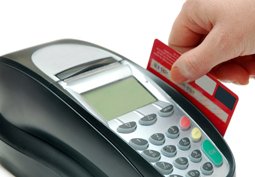By: Jeanne Kelly
A woman who was turned down for a loan recently came to me for advice on why she was rejected. As she sat at my desk, she said she had perfect credit. When I asked her why she thought her credit was perfect, she replied that she should have perfect credit because she had no problem paying her bills. I asked to see her credit report, and there was nothing on it.
It’s a common misconception that we start out with perfect credit and it gets worse with every loan or credit card we obtain. As a result, people avoid taking out loans and cut up or cancel credit cards they no longer use.
If you want great credit, those are the wrong things to do.
I’ll illustrate it this way: If you were going to loan your car to someone, would you rather loan it to someone who had never driven before or to someone who had a perfect driving record with years of experience?
Obviously the answer is that you would feel better about lending your car to the experienced driver. The same is true for money lenders: They prefer to lend to those who have shown that they can pay back the money they owe.
Our credit scores grow when we borrow money and pay it back on time and in full, and decline when we don’t borrow or when we don’t pay back our debts on time.
One of the best skills you can learn (and you should teach to your children) is how to get and manage debt in order to build your credit scores. Here are some things to keep in mind:
- You need a variety of loans. You should have a couple of revolving loans (like credit cards and lines of credit) and a couple of installment loans (like a mortgage or car financing). Lenders want to see both types.
- Inactive accounts won’t help you. Credit cards that remain dormant on your credit report don’t give you better scores. Use them regularly to take them out of hibernation, or the lender may close the account due to inactivity. (Remember: Always be responsible and spend only when you have the money to pay off your balances in full.)
- Pay back your loans on time. This is huge. Lenders are more likely to lend you money if they feel like you will pay them back when you say you will.
A lender wants to see a history of responsible borrowing to help it decide whether to lend to you. Use that line of credit from time to time, and make sure you rotate through all of your credit cards on a regular basis to keep them active. When you’re first building credit, try for store credit cards or secured credit cards.
If you want to qualify for a mortgage or big loan in the future, the best thing you can do right now is start (responsibly) spending money with credit.



